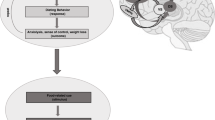Abstract
Chronic illness behavior is defined by frequent visits to physicians, multiple somatic complaints, and disability disproportionate to physical findings. The prevalence of chronic illness behavior in people with irritable bowel syndrome and peptic ulcer was studied in a telephone survey of 832 people from metropolitan Cincinnati. People with irritable bowel syndrome (8% of the sample) were more likely than people with peptic ulcer (10% of the sample), and also more likely than the general population, to have multiple somatic complaints, to view their colds and flus as more serious than those of other people, and to consult a physician for minor illnesses. People with peptic ulcer were not different from the rest of the population in these regards. Chronic illness behavior appears to be learned; people who recalled being given gifts or special foods when they had a cold or flu as a child were more likely to exhibit chronic illness behavior and also more likely to have irritable bowel syndrome. These results suggest that social learning may contribute to the etiology of irritable bowel syndrome but not peptic ulcer.
Similar content being viewed by others
References
Parson T: The Social System. New York, Free Press, 1951
Mechanic D: Social psychologic factors affecting the presentation of bodily complaints. N Engl J Med 286:1132–1139, 1972
Wooley SC, Blackwell B, Winget C: The learning theory model of chronic illness behavior: Theory, treatment, and research. Psychosom Med 40:379–401, 1978
Fordyce WE: Behavioral Methods for Chronic Pain and Illness. St. Louis, Mosby, 1976
Fedoravicius AS: Behavioral medicine at University of Cincinnati Medical Center: The Psychosomatic Unit of the Cincinnati General Hospital. Behav Med Newsletter 1(3):4–5, 1978
Miller NE: Effect of learning on gastrointestinal functions. Clin Gastroenterol 6:533–546, 1977
Whitehead WE, Fedoravicius AS, Blackwell B, Wooley S: A behavioral conceptualization of psychosomatic illness: Psychosomatic symptoms as learned responses.In Behavioral Approaches in Medicine: Application and Analysis. JR McNamara (ed). New York, Plenum, 1979, pp 65–99
Welgan PR: Learned control of gastric acid secretion in ulcer patients. Psychosom Med 36:411–419, 1974
Whitehead WE, Renault PF, Goldiamond I: Modification of human gastric acid secretion with operant-conditioning procedures. J Appl Behav Anal 8:147–156, 1975
Miller NE, Banuazizi A: Instrumental learning by curarized rats of a specific visceral response, intestinal or cardiac. J Comp Physiol Psychol 65:1–7, 1968
DiCara LV, Braun JJ, Pappas BA: Classical conditioning and instrumental learning of cardiac and gastrointestinal responses following removal of neocortex in the rat. J Comp Physiol Psychol 73:209–216, 1970
Bueno-Miranda F, Cerulli M, Schuster MM: Operant conditioning of colonic motility in irritable bowel syndrome (IBS). Gastroenterology 70:867, 1976 (abstract)
Winer BJ: Statistical principles in Experimental Design. New York, McGraw-Hill, 1962
United States Bureau of the Census, Census of Population: 1970. Detailed Characteristics. Report PC(1)D37 Ohio. Washington, DC, U.S. Government Printing Office, 1972
United States Bureau of the Census, Census of Population: 1970. General Population Characteristics. Final report PC(1)-B37 Ohio. Washington, DC, U.S. Government Printing Office, 1971
Weiner H: Psychobiology and Human Disease. New York, Elsevier, 1977
Connell AM: The motility of the pelvic colon. Part II. Paradoxical motility in diarrhea and constipation. Gut 3:342–348, 1962
Thompson WG, Heaton KW: Functional bowel disorder in apparently healthy people. Gastroenterology 79:283–288, 1980
Mendeloff AI, Monk M, Seigel CI, Lillienfeld A: Illness experience and life stress in patients with irritable colon and with ulcerative colitis. N Engl J Med 282:14–17, 1970
Chaudhary NA, Truelove SC: The irritable colon syndrome: A study of the clinical features, predisposing causes, and prognosis in 130 cases. Q J Med 31:307–322, 1962
Young SJ, Alpers DH, Norland CC, Woodruff RA: Psychiatric illness and the irritable bowel syndrome: Practical implications for the primary care physician. Gastroenterology 70:162–166, 1976
Author information
Authors and Affiliations
Additional information
Supported in part by Research Scientist Development Award 7 K01 MH00133 from the National Institute of Mental Health and by grants MH 08018 and MH 14476.
Rights and permissions
About this article
Cite this article
Whitehead, W.E., Winget, C., Fedoravicius, A.S. et al. Learned illness behavior in patients with irritable bowel syndrome and peptic ulcer. Digest Dis Sci 27, 202–208 (1982). https://doi.org/10.1007/BF01296915
Received:
Revised:
Accepted:
Issue Date:
DOI: https://doi.org/10.1007/BF01296915




